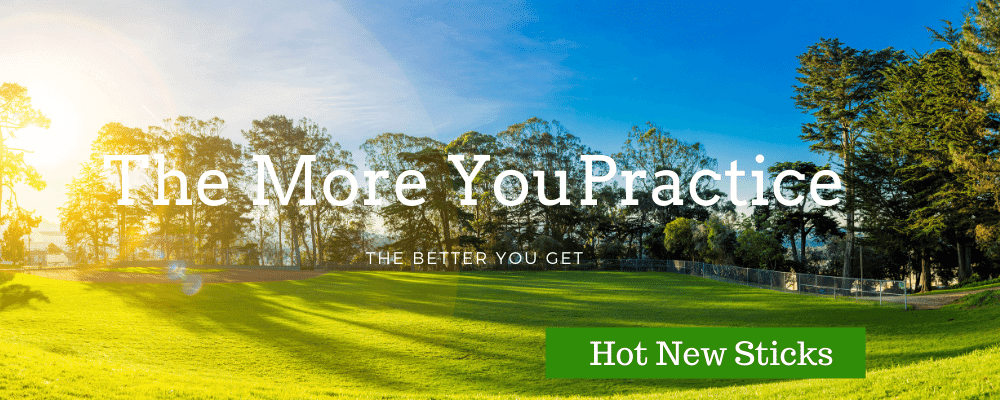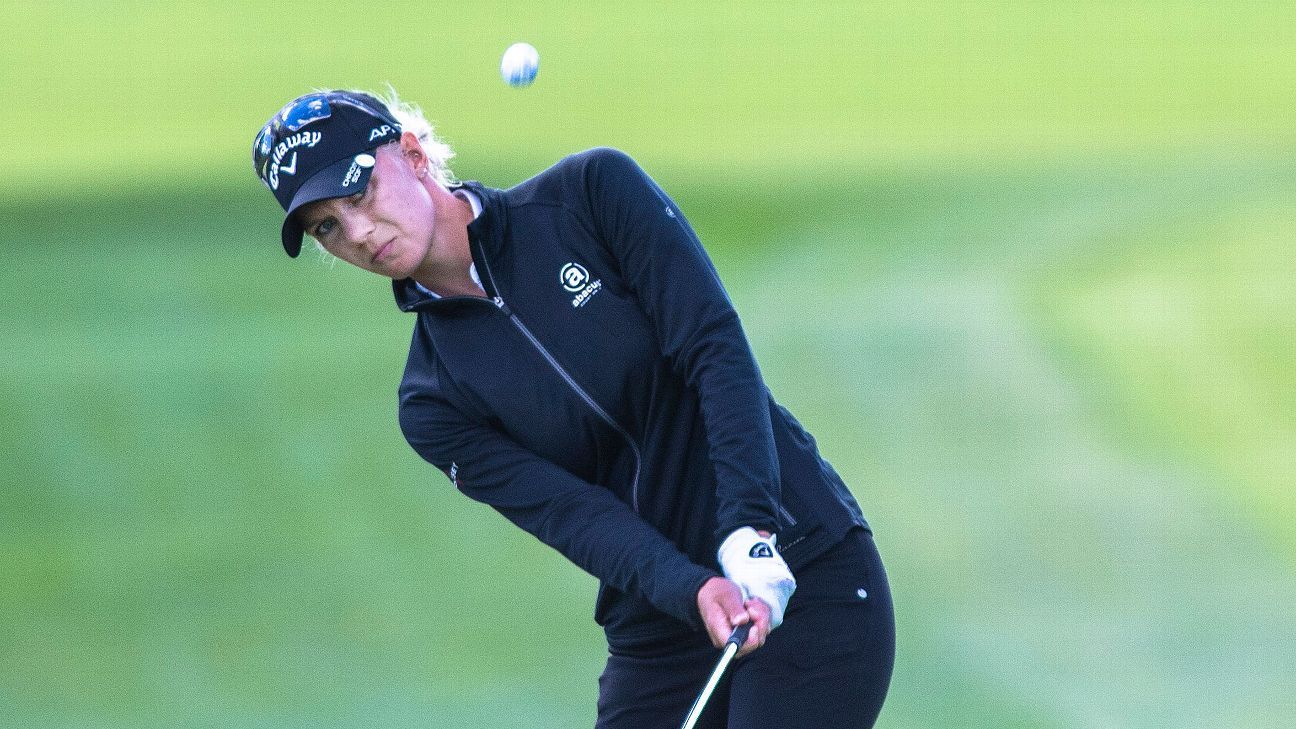Products You May Like
LPGA Tour player Madelene Sagstrom first shared her secret five years ago. For 16 years, she acted like nothing had happened. She immersed herself in golf, creating an identity on the course.
But in March 2016, as she prepared for a Symetra Tour event, Sagstrom couldn’t keep it in any longer. She needed to open up about being sexually abused at the age of 7 by an adult male friend in Sweden.
In an LPGA Drive On video feature released Monday, Sagstrom, 28, shared her story of childhood sexual abuse and the healing that took place after she decided to talk about what happened to her.
Madelene Sagstrom’s story is hard to read, but important to hear. One in nine girls under the age of 18 are sexually abused at the hands of an adult.
She shares her story here in the spirit of helping others.
None of Us Are Alone | https://t.co/nFG6lw6mRZ#DriveOn pic.twitter.com/ilkJ5RZMAd
— LPGA (@LPGA) February 22, 2021
Sagstrom, who has been on the LPGA Tour since 2017 and won the 2020 Gainbridge LPGA, returns to that tournament starting Thursday at Lake Nona Golf & Country Club in Orlando, Florida.
Throughout the process of helping Sagstrom share her story, LPGA officials say they have learned a lot and started conversations around what resources and support the tour has in place for current and future players when it comes to sexual abuse.
Roberta Bowman, the LPGA’s Chief Brand and Communications Officer, said that through LPGA/USA Girls Golf, which reaches nearly 100,000 girls a year, the tour wanted to make sure Girls Golf leaders had the necessary resources. The tour continues to follow the SafeSport protocol, and worked closely with RAINN, the National Sexual Assault Hotline, during the process of preparing to tell Sagstrom’s story.
And this week, the LPGA will be sharing resources and support from RAINN to the USGA Girls Golf leaders. Some of those resources include tips for adults on how to protect children from sexual abuse, how to know the warning signs of grooming and social media safety.
Additionally, for the girls, some of the resources will include what to do if something happened that made them feel uncomfortable or not safe.
In the video and her accompanying first-person essay, Sagstrom explained how she first shared her story with her mentor, Robert Karlsson, a former Ryder Cup player who she had met through the Swedish National Team. After struggling with her emotions on the course, Sagstrom turned to Karlsson for help. In return, Karlsson encouraged her to dig deep and try to figure out the reason she would react the way she did.
“I had this thing come up in my mind. At first, I didn’t think it was important. But it kept coming back again and again,” Sagstrom said in her essay published on LPGA.com. “I thought, ‘Maybe there is something there. Maybe I should tell Robert.'”
While preparing for a tournament in Greenwood, South Carolina, Sagstrom told Karlsson she had been sexually abused as a child. In the LPGA video, Sagstrom said telling Karlsson helped her feel free.
“This was something I was never going to tell anybody,” Sagstrom said Sunday. “It was a story and it was an experience that was deeply hidden within me, and I was never going to share that with anybody, and I just came to realize when I started working with Robert, this has changed me. This has made me who I am today.”
Sagstrom won her first LPGA title at the Gainbridge LPGA last year. Afterward, she published a letter to her younger self on her Facebook page, revealing more about her childhood and her journey to that point.
Prior to that post, Sagstrom said she also shared on Facebook about her abuse in 2017. At that point, the LPGA was aware of Sagstrom’s experience with sexual abuse. But, up until then, the LPGA’s primary goal was to represent and protect Sagstrom and her story.
“It was after Gainbridge last year at the height of Madelene’s sort of career success, and just watching how she handled herself in the aftermath of that, the thoughtful answers to the media questions, and then she did something very interesting, and she posted on her Facebook page a letter to little Madelene, and that became the signal to us that there was a growing sense of comfort in a broader sharing of this story,” Bowman said.
For more than a year, the LPGA and Sagstrom have worked together on revealing the full story of Sagstrom’s past as part of the its Drive On initiatives.
“It’s been an ongoing situation,” Bowman said. “But we really needed to satisfy ourselves, both Madelene and the LPGA, that she was ready to do this.”
Sagstrom said she feels ready to go public in a larger way with her story, and that her biggest hope is she can help others realize they aren’t alone.
“Over the years, my platform has grown. Being a winner in 2020 has just opened up the doors that I know that I can share more of myself, and it’s going to reach more people,” Sagstrom said. “I figured it was the perfect timing. The LPGA has been amazing with all the support. We worked on this for a very long time, and I think the timing is great. I just wanted to just help somebody out there.”
In telling Sagstrom’s story, the LPGA hopes to create a challenging but impactful conversations on-and-off the golf course.
“There are so many layers of this particular story,” Bowman said. “If your life is touched with trauma, to have that conversation and reach out to others. If you are lucky enough that you’ve been spared that, maybe you’ll find yourself in the role of Robert Karlsson and having to have that judgment at the very moment, and to create that conversation around how can we appreciate and support people going through their own changes.”
With the publishing of Sagstrom’s Drive On video, she wants the focus to be on the steps she’s taken since first sharing her secret and going public with her childhood sexual abuse. She also hopes that she can be a guiding light for others that might need resources and support.
“I’m telling the story but what I want to focus on and what I want to share with people is it’s the steps that I’ve done afterwards, the decisions that I have decided to do to grow,” Sagstrom said. “It’s not about what happened, it’s about how did I grow out of this, how did I become the version that I am today.”



